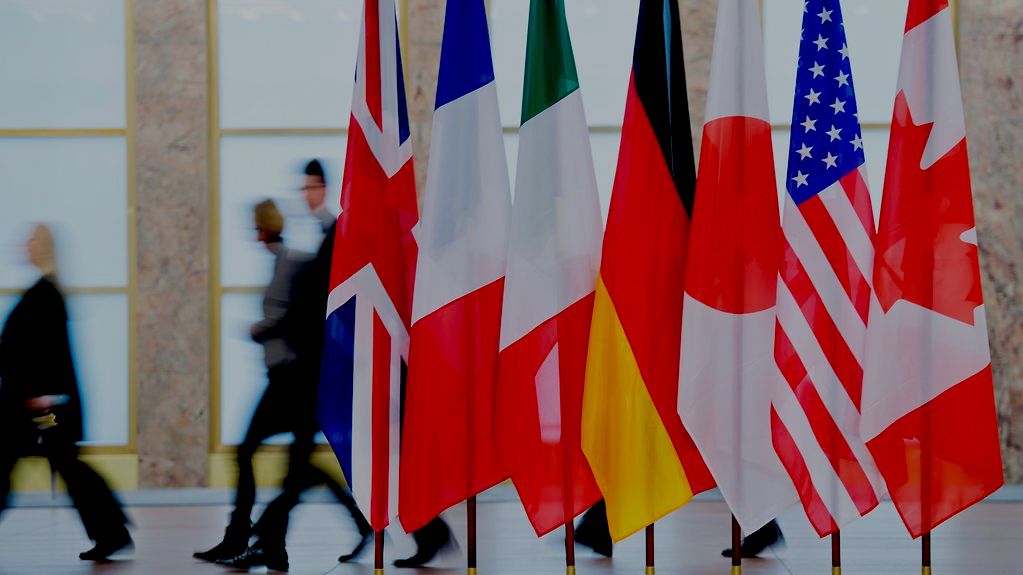Success at November’s UN COP26 summit – a first test of the Paris Agreement’s ability to stem the climate crisis – remains in jeopardy following the G7 summit last week, unless wealthy countries can continue to shore up vaccines and financial aid for the poorest and most vulnerable countries between now and then.
G7 leaders blew a historic opportunity to lead a global charge against the triple crises of Covid-19, climate change and the collapse of nature – agreeing to strong words without details or timelines to match the urgency.
The disappointing summit adds pressure on the UN General Assembly and G20 meetings to drive a healthy, green, global recovery to the three crises, which would then set the scene for a successful COP26. Without a show of solidarity for the poorest and most at-risk countries simultaneously battling the pandemic and the impacts of climate change, the Glasgow summit risks falling flat.
The leaders of the UK, US, Canada, Italy, Germany, France and Japan left the G7 meeting in Cornwall with a joint statement setting out ambitions to halve their greenhouse gas emissions between 2010 and 2030, reach net zero emissions by 2050 and halt and reverse biodiversity loss by 2030. They pledged to provide 1 billion Covid-19 vaccines to poorer countries and to increase and improve their public climate finance out to 2025.
“On the outside the deal looks good, but there’s little detail on the inside”
This fell short of calls on the G7 to fulfil a longstanding pledge to shore up $100 billion in public and private climate finance per year from 2020, to set a higher target for 2025 onwards and to restructure the debt hold facing African, Asian and Latin American countries. They were also urged to aim for global vaccination coverage by 2022. Instead, they said that ending the pandemic next year would require at least 60 percent of the population to be vaccinated.
“On the outside the deal looks good, but there’s little detail on the inside,” said Rachel Kyte, Dean of Tufts Fletcher School in the US and a former UN climate envoy.
At COP26, countries are due to strengthen their plans for cutting emissions and adapting to the impacts of climate change in line with the Paris Agreement’s goal to limit global warming to 1.5 degrees Celsius. The UN’s panel of climate scientists has found that for the best chance of meeting that goal the world needs to halve emissions between 2020 and 2030 and regenerate nature at the same time. That will save hundreds of millions of lives and trillions of dollars worth of added damage.
To achieve this in November, G7 countries will have to “hit high notes” at G20 meetings, the UN General Assembly in September, the Convention on Biodiversity COP25 in China in October, the IMF/World Bank annual meetings and the G20 leaders’ summit in late October, Kyte said. That includes setting out a detailed plan for realising the $100 billion climate finance pledge by the UNGA.

Pakistan’s climate minister Malik Amin Aslam said the G7’s climate finance promise “is really peanuts in the face of an existential catastrophe”. He told The Guardian: “It really comes as a huge disappointment for impacted and vulnerable countries like Pakistan – already compelled to ramp up their climate expenditures to cope with forced adaptation needs.”
In more welcome news, Canada and Germany announced increases to their climate finance after the summit: Canada to C$5.3 billion over the next five years, and Germany by €2 billion to €6 billion per year by 2025.
Overall, however, the gaps left by the G7 add pressure on Italian Prime Minister Mario Draghi, former European Central Bank president and host of the G20 talks starting next month with a finance meeting in Venice. Italy is also co-president of the COP26 with the UK and will host pre-COP and youth climate summits in October.

The G7 also drew criticism for faltering in the drive to phase out coal-fired power generation, pledging only to “accelerate” the transition away from what they recognise as the “single biggest cause of greenhouse gas emissions”. As for support for all fossil fuels, the leaders simply reaffirmed an existing commitment to “eliminate inefficient fossil fuel subsidies” by 2025.
To stay within 1.5C of warming, the science says global coal emissions should have peaked in 2020. OECD nations should end their coal use entirely by 2030 and all coal-fired power stations worldwide should shut by 2040, according to Climate Analytics. UN Secretary-General António Guterres has long called on all countries to immediately stop building new coal-fired power plants and end fossil fuel subsidies.
“Voluntary measures to tackle deforestation have failed so far”
The G7’s commitment to halt and reverse biodiversity loss in the 2020s marked a welcome addition of nature to the political radar. However, advocates noted that governments are profoundly off track on their targets and will need to set out plans for meeting them.
The leaders also agreed to conserve or protect at least a third of land and oceans by 2030. However, even the UK, which urged the G7 to agree to the target as chair of the summit, is failing to create the legislation needed to achieve the goal – even taking steps that will weaken existing rules.
“Voluntary measures to tackle deforestation have failed so far,” said Beatriz Luraschi, principal policy officer at the Royal Society for the Protection of Birds. “We need to see regulation that holds companies up and down the supply chain liable for deforestation – like those being introduced in the UK and Europe.”
Countries could set out a global framework for reversing biodiversity loss at the Convention of Biodiversity COP15 summit. This would help raise the importance of nature at the COP26 too, encouraging more countries to set out plans for conserving and regenerating nature in their strengthened Paris Agreement commitments.





